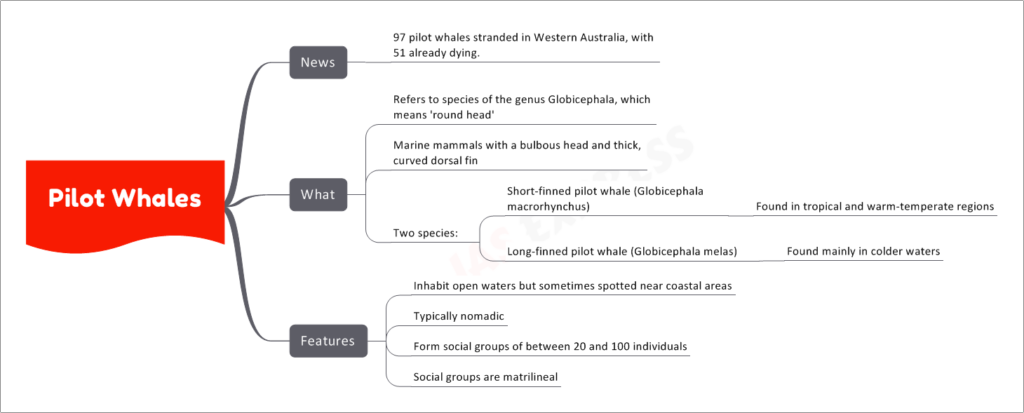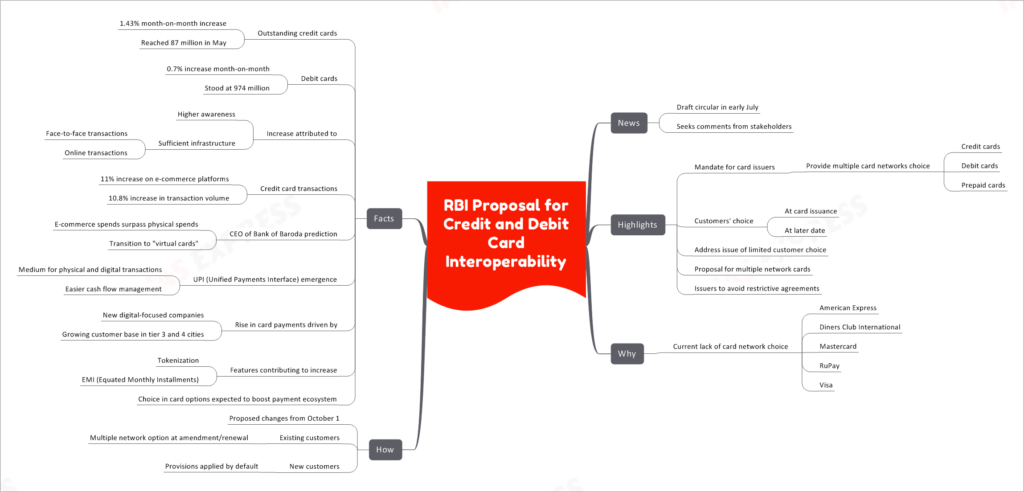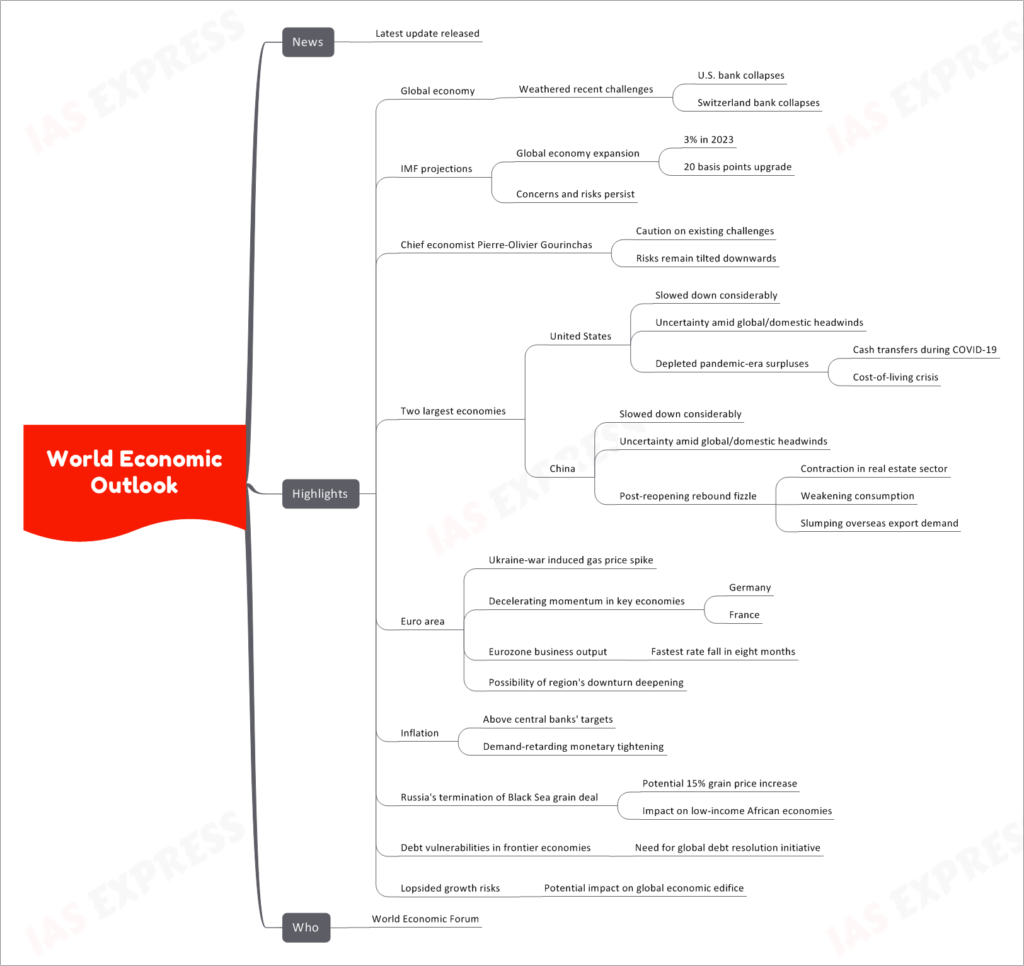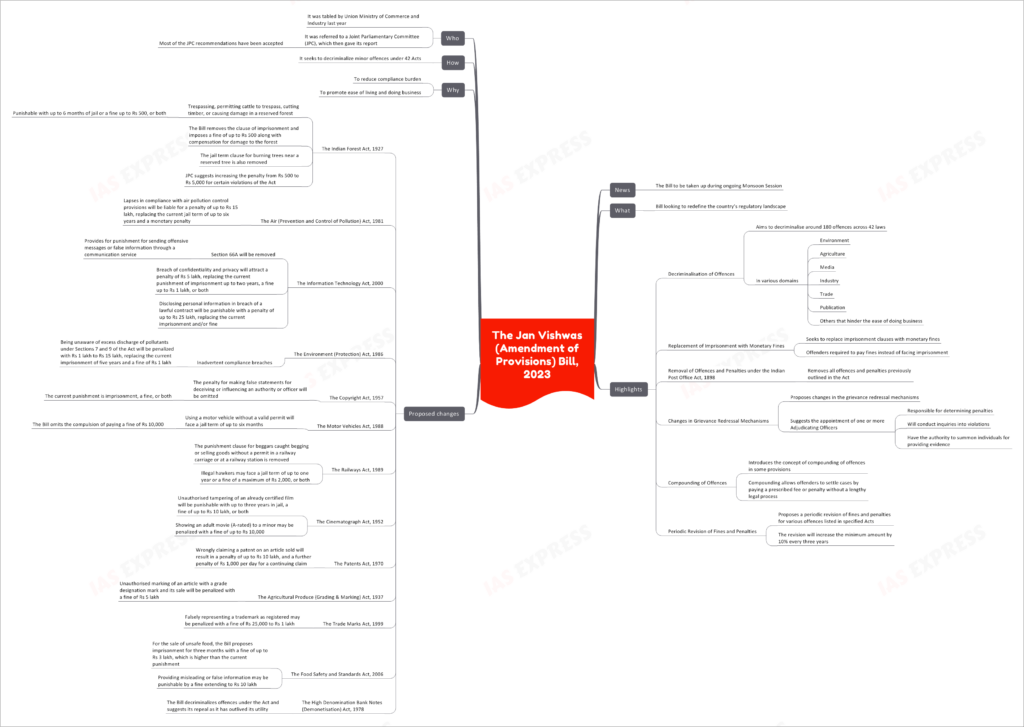[Newsbits] 27.07.2023
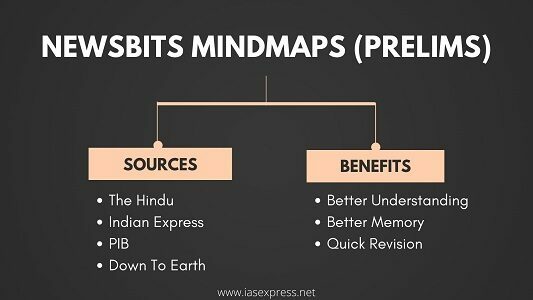
Pilot Whales
News
- Recently, 97 pilot whales were stranded in Western Australia, and unfortunately, 51 of them have already died.
What
- Pilot whales refer to species of the genus Globicephala, which translates to 'round head.'
- These marine mammals are characterized by their bulbous head and thick, curved dorsal fin.
- There are two species of pilot whales:
- Short-finned pilot whale (Globicephala macrorhynchus), found in tropical and warm-temperate regions.
- Long-finned pilot whale (Globicephala melas), mainly found in colder waters.
Features
- Pilot whales inhabit open waters but are sometimes spotted near coastal areas.
- They are typically nomadic in their movements.
- These whales form social groups of between 20 and 100 individuals.
- The social groups of pilot whales are matrilineal, meaning they are organized around the female members of the group.
Purbashree on Wheels
News
- The information about "Purbashree on Wheels" was provided in a written reply in Rajya Sabha.
What
- "Purbashree on Wheels" is a mobile outlet of the Purbashree e-commerce portal.
- The Purbashree website serves as a platform to showcase handicraft products from the northeastern states of India.
Pros
- The products featured on the Purbashree website are handmade and made from natural fibers, promoting eco-friendly and sustainable living.
How
- "Purbashree on Wheels" facilitates direct purchases from artisans, connecting them directly to customers.
- The initiative supports artisans by providing them with necessary facilities to showcase and sell their products.
Who
- "Purbashree on Wheels" is implemented by the North Eastern Handicrafts and Handloom Development Corporation (NEHHDC).
- NEHHDC was incorporated in 1977 and operates under the Ministry of Development of North Eastern Region.
- The initiative covers crafts from various northeastern states, including Arunachal Pradesh, Assam, Manipur, Meghalaya, Mizoram, Nagaland, Sikkim, and Tripura.
RBI Proposal for Credit and Debit Card Interoperability
News
- The Reserve Bank of India (RBI) released a draft circular in early July, seeking comments from stakeholders on a proposal for credit and debit card interoperability.
Highlights
Mandate for Card Issuers
- Card issuers will be required to provide multiple choices of card networks for customers.
- This includes credit cards, debit cards, and prepaid cards.
Customers' Choice
- Customers will have the option to choose their preferred card network at the time of card issuance and also at a later date.
- The proposal aims to address the issue of limited customer choice in card networks.
Proposal for Multiple Network Cards
- The RBI is proposing to introduce multiple network cards to increase competition and enhance customer options.
Issuers to Avoid Restrictive Agreements
- Card issuers will be discouraged from entering into restrictive agreements that limit customer choices.
Why
- The current lack of card network choice in India includes limited options such as American Express, Diners Club International, Mastercard, RuPay, and Visa. The proposal aims to address this limitation.
How
- The proposed changes are expected to be implemented from October 1.
- For existing customers, the option to choose multiple card networks will be available at the time of amendment or renewal.
- For new customers, the provisions will be applied by default.
Facts
- Outstanding credit cards saw a 1.43% month-on-month increase, reaching 87 million in May.
- Debit cards also saw a 0.7% increase month-on-month, reaching 974 million.
- The increase in card usage is attributed to higher awareness and sufficient infrastructure for face-to-face and online transactions.
- Credit card transactions on e-commerce platforms saw an 11% increase, with a 10.8% increase in transaction volume.
- The CEO of Bank of Baroda predicts that e-commerce spends will surpass physical spends, and there will be a transition to "virtual cards."
- The emergence of UPI (Unified Payments Interface) has become a medium for both physical and digital transactions, enabling easier cash flow management.
- The rise in card payments is driven by new digital-focused companies and a growing customer base in tier 3 and 4 cities.
- Features such as tokenization and EMI (Equated Monthly Installments) have contributed to the increase in card usage.
- Providing choice in card options is expected to boost the payment ecosystem in India.
World Economic Outlook
News
- The latest update on the world economic outlook has been released.
Highlights
Global Economy
- The global economy has weathered recent challenges, including the collapse of banks in the United States and Switzerland.
IMF Projections
- The IMF projects a global economic expansion of 3% in 2023, reflecting a 20 basis points upgrade.
- Concerns and risks continue to persist despite the projected growth.
- Chief economist Pierre-Olivier Gourinchas advises caution due to existing challenges.
- Risks remain tilted downwards, posing potential threats to the economic outlook.
Two Largest Economies
United States
- The United States economy has slowed down considerably and faces uncertainty amid global and domestic headwinds.
- The pandemic-era surpluses have depleted due to cash transfers during COVID-19 and a cost-of-living crisis.
China
- China's economy has also experienced a considerable slowdown and faces uncertainty from global and domestic factors.
- The post-reopening rebound has fizzled due to a contraction in the real estate sector, weakening consumption, and slumping overseas export demand.
Euro Area
- The Euro area has been impacted by a Ukraine-war induced gas price spike and a decelerating momentum in key economies such as Germany and France.
- Eurozone business output experienced its fastest rate fall in eight months, raising concerns about the possibility of a deeper downturn in the region.
Inflation
- Inflation rates have been above central banks' targets, leading to demand-retarding monetary tightening measures.
Russia's Termination of Black Sea Grain Deal
- Russia's termination of the Black Sea grain deal has the potential to lead to a 15% increase in grain prices, impacting low-income African economies.
Debt Vulnerabilities in Frontier Economies
- There is a need for a global debt resolution initiative to address debt vulnerabilities in frontier economies.
Lopsided Growth Risks
- Lopsided growth risks could have a significant impact on the global economic edifice, potentially causing imbalances and disruptions.
Who
- The World Economic Forum is the organization providing the world economic outlook and analysis.
The Jan Vishwas (Amendment of Provisions) Bill, 2023
The Jan Vishwas (Amendment of Provisions) Bill, 2023 is a significant piece of legislation set to be discussed during the ongoing Monsoon Session.
Highlights
Decriminalisation of Offences
- Aims to decriminalise approximately 180 offences that are currently covered under 42 different laws.
- The offences span across several domains, including environment, agriculture, media, industry, trade, publication, and others that impede the ease of doing business.
Replacement of Imprisonment with Monetary Fines
- Seeks to replace the clauses of imprisonment with monetary fines for offenders.
- Offenders found guilty of certain offences will be required to pay fines instead of facing imprisonment.
Removal of Offences and Penalties under the Indian Post Office Act, 1898
- All offences and penalties outlined in the Indian Post Office Act, 1898, will be removed.
Changes in Grievance Redressal Mechanisms
- Proposes changes in the grievance redressal mechanisms, introducing one or more Adjudicating Officers.
- Adjudicating Officers will be responsible for determining penalties and conducting inquiries into violations.
- These officers will have the authority to summon individuals for providing evidence.
Compounding of Offences
- Introduces the concept of compounding of offences in some provisions.
- Compounding will allow offenders to settle cases by paying a prescribed fee or penalty without going through a lengthy legal process.
Periodic Revision of Fines and Penalties
- Proposes periodic revision of fines and penalties for various offences listed in specified Acts.
- The revision will increase the minimum amount by 10% every three years.
Proposed Changes
The Indian Forest Act, 1927
- Current offences related to trespassing, permitting cattle to trespass, cutting timber, or causing damage in a reserved forest are punishable with up to 6 months of jail or a fine up to Rs 500, or both.
- The Bill removes the imprisonment clause and imposes a fine of up to Rs 500 along with compensation for damage to the forest.
- The jail term clause for burning trees near a reserved tree is also removed.
- JPC suggests increasing the penalty from Rs 500 to Rs 5,000 for certain violations of the Act.
The Air (Prevention and Control of Pollution) Act, 1981
- Lapses in compliance with air pollution control provisions will be liable for a penalty of up to Rs 15 lakh, replacing the current jail term of up to six years and a monetary penalty.
The Information Technology Act, 2000
- Section 66A, which provides punishment for sending offensive messages or false information through a communication service, will be removed.
- Breach of confidentiality and privacy will attract a penalty of Rs 5 lakh, replacing the current punishment of imprisonment up to two years, a fine up to Rs 1 lakh, or both.
- Disclosing personal information in breach of a lawful contract will be punishable with a penalty of up to Rs 25 lakh, replacing the current imprisonment and/or fine.
The Environment (Protection) Act, 1986
- Inadvertent compliance breaches, being unaware of excess discharge of pollutants under Sections 7 and 9 of the Act, will be penalized with Rs 1 lakh to Rs 15 lakh, replacing the current imprisonment of five years and a fine of Rs 1 lakh.
The Copyright Act, 1957
- The penalty for making false statements for deceiving or influencing an authority or officer will be omitted. The current punishment is imprisonment, a fine, or both.
The Motor Vehicles Act, 1988
- Using a motor vehicle without a valid permit will face a jail term of up to six months. The Bill omits the compulsion of paying a fine of Rs 10,000.
The Railways Act, 1989
- The punishment clause for beggars caught begging or selling goods without a permit in a railway carriage or at a railway station is removed.
- Illegal hawkers may face a jail term of up to one year or a fine of a maximum of Rs 2,000, or both.
The Cinematograph Act, 1952
- Unauthorised tampering of an already certified film will be punishable with up to three years in jail, a fine of up to Rs 10 lakh, or both.
- Showing an adult movie (A-rated) to a minor may be penalized with a fine of up to Rs 10,000.
The Patents Act, 1970
- Wrongly claiming a patent on an article sold will result in a penalty of up to Rs 10 lakh, and a further penalty of Rs 1,000 per day for a continuing claim.
The Agricultural Produce (Grading & Marking) Act, 1937
- Unauthorised marking of an article with a grade designation mark and its sale will be penalized with a fine of Rs 5 lakh.
The Trade Marks Act, 1999
- Falsely representing a trademark as registered may be penalized with a fine of Rs 25,000 to Rs 1 lakh.
The Food Safety and Standards Act, 2006
- For the sale of unsafe food, the Bill proposes imprisonment for three months with a fine of up to Rs 3 lakh, which is higher than the current punishment.
- Providing misleading or false information may be punishable by a fine extending to Rs 10 lakh.
The High Denomination Bank Notes (Demonetisation) Act, 1978
- The Bill decriminalizes offences under the Act and suggests its repeal as it has outlived its utility.
Why
- The primary objectives of the Jan Vishwas Bill are to reduce the compliance burden and promote ease of living and doing business in the country.
How
- The bill seeks to achieve its goals by decriminalizing minor offences under 42 Acts, replacing imprisonment with monetary fines, and making changes to grievance redressal mechanisms.
Who
- The Jan Vishwas (Amendment of Provisions) Bill, 2023 was tabled by the Union Ministry of Commerce and Industry last year.
- It was then referred to a Joint Parliamentary Committee (JPC), which subsequently gave its report.
- Most of the recommendations made by the JPC have been accepted and incorporated into the bill.
If you like this post, please share your feedback in the comments section below so that we will upload more posts like this.
